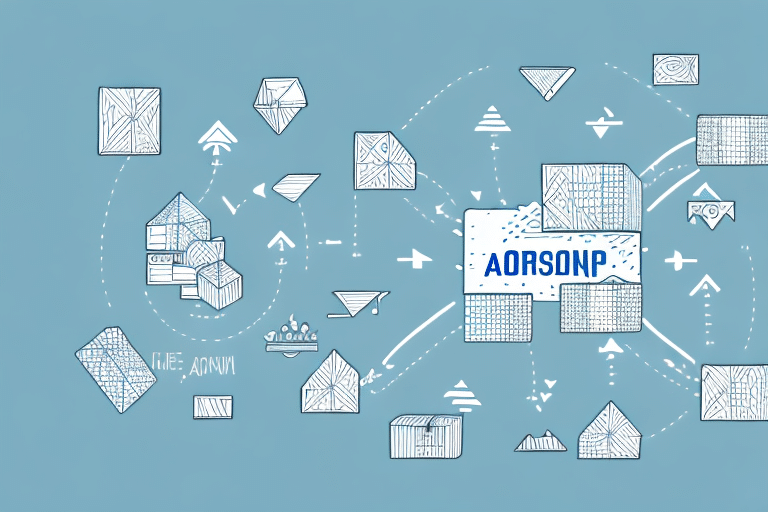Introduction to 3PL Supply Chain Solutions
In today’s fast-paced business environment, efficient and effective supply chain management is critical to success. As companies expand their reach, managing the supply chain becomes increasingly complex. Many businesses are turning to 3PL (third-party logistics) supply chain solutions to optimize their operations and achieve greater efficiencies. This article explores the numerous benefits of using 3PL solutions, from cost savings to enhanced supply chain visibility and flexibility.
Benefits of Outsourcing Supply Chain Management
Cost Savings and Economies of Scale
Outsourcing supply chain management to a 3PL provider can lead to significant cost reductions. By leveraging the 3PL's established networks and bulk purchasing power, businesses can reduce transportation and warehousing costs. According to a Forbes report, companies can save up to 20% on logistics expenses by partnering with a 3PL.
Access to Expertise and Advanced Technology
3PL providers bring specialized knowledge and advanced technological solutions to supply chain management. They utilize sophisticated software for inventory tracking, demand forecasting, and route optimization, which can enhance overall efficiency. This expertise allows businesses to focus on their core competencies while relying on experts to manage logistics effectively.
Global Reach and Flexibility
Partnering with a 3PL provider enables businesses to tap into a global network of partners and suppliers. This facilitates expansion into new markets without the need for significant investments in infrastructure. Additionally, 3PLs offer flexibility to scale operations up or down based on market demands, providing businesses with the agility necessary to respond to changes swiftly.
Choosing the Right 3PL Provider
Industry Experience and Specialization
Selecting a 3PL provider with experience in your specific industry ensures that your unique logistics needs are met. Providers specializing in sectors such as healthcare, automotive, or e-commerce bring tailored solutions that address industry-specific challenges.
Technological Capabilities
Evaluate the technological tools and platforms a 3PL provider uses. Advanced systems for real-time tracking, data analytics, and automated processes can significantly enhance supply chain visibility and efficiency. According to a Supply Chain Digital survey, businesses that utilize advanced 3PL technologies report a 30% improvement in supply chain performance.
Geographic Reach and Network Strength
Ensure the 3PL provider has a strong presence in the regions where you operate or plan to expand. A robust geographic network minimizes delivery times and reduces the risk of delays, ensuring timely fulfillment of orders.
Customer Service and Support
Effective communication and responsive customer support are crucial for a successful 3PL partnership. Choose a provider that offers dedicated account management and proactive support to address any issues promptly.
Current Trends and Future of 3PL
Emphasis on Data Analytics and AI
The integration of data analytics and artificial intelligence (AI) is revolutionizing the 3PL industry. These technologies enable providers to predict demand fluctuations, optimize routes, and enhance inventory management. A McKinsey study highlights that companies using AI-driven logistics solutions see a 15-20% increase in operational efficiency.
Sustainability and Green Logistics
Sustainability is becoming a key focus in supply chain management. 3PL providers are adopting green logistics practices, such as using electric vehicles, optimizing routes to reduce emissions, and implementing sustainable packaging solutions. These initiatives not only benefit the environment but also meet the growing consumer demand for eco-friendly businesses.
Rise of E-commerce and Last-Mile Delivery
The boom in e-commerce has heightened the importance of efficient last-mile delivery services. 3PL providers are innovating with solutions like same-day delivery, locker systems, and automated delivery drones to meet the increasing consumer expectations for fast and reliable delivery.
Implementing a 3PL Solution
Clear Goal Setting and Objective Alignment
Successful implementation of a 3PL solution begins with setting clear goals and aligning them with the provider’s capabilities. Define specific objectives such as reducing delivery times, lowering costs, or improving inventory accuracy to ensure that the 3PL partnership supports your business strategy.
Open Communication and Collaboration
Establishing open lines of communication with your 3PL provider fosters a collaborative environment. Regular meetings and transparent sharing of information help in addressing challenges promptly and optimizing supply chain processes effectively.
Performance Monitoring and Continuous Improvement
Implement key performance indicators (KPIs) to monitor the performance of your 3PL provider. Metrics such as order accuracy, delivery times, and cost savings should be regularly reviewed to ensure that the partnership delivers the desired outcomes. Continuous improvement initiatives can further enhance operational efficiency.
Measuring Success and ROI with 3PL
Evaluating Return on Investment (ROI)
Assessing the ROI of a 3PL partnership involves analyzing both tangible and intangible benefits. Cost savings, improved delivery times, and enhanced customer satisfaction contribute to a positive ROI. Additionally, the ability to scale operations without significant capital investment adds to the financial benefits.
Case Studies: Real-World Success Stories
Many businesses have successfully implemented 3PL strategies to enhance their supply chain operations. For instance, a leading e-commerce retailer partnered with a 3PL provider to streamline its logistics, resulting in a 25% reduction in shipping costs and a 30% improvement in delivery speed. Another example is a healthcare company that improved its inventory management and reduced stockouts by collaborating with a specialized 3PL provider.
Best Practices for Maximizing ROI
To maximize ROI from a 3PL partnership, businesses should:
- Clearly define objectives and expectations.
- Choose a provider with the right expertise and technological capabilities.
- Maintain open and ongoing communication.
- Regularly review performance metrics and adjust strategies as needed.
- Foster a collaborative relationship aimed at continuous improvement.
Conclusion
3PL supply chain solutions offer a multitude of benefits to businesses of all sizes and industries. From cost savings and access to specialized expertise to enhanced supply chain visibility and flexibility, outsourcing supply chain management to a third-party provider can drive significant operational efficiencies. As the industry continues to evolve with advancements in technology and changing market demands, 3PL providers will play an increasingly vital role in helping businesses optimize their supply chain operations. By following best practices and carefully evaluating the potential ROI, businesses can make informed decisions about leveraging 3PL solutions to achieve their strategic goals.








